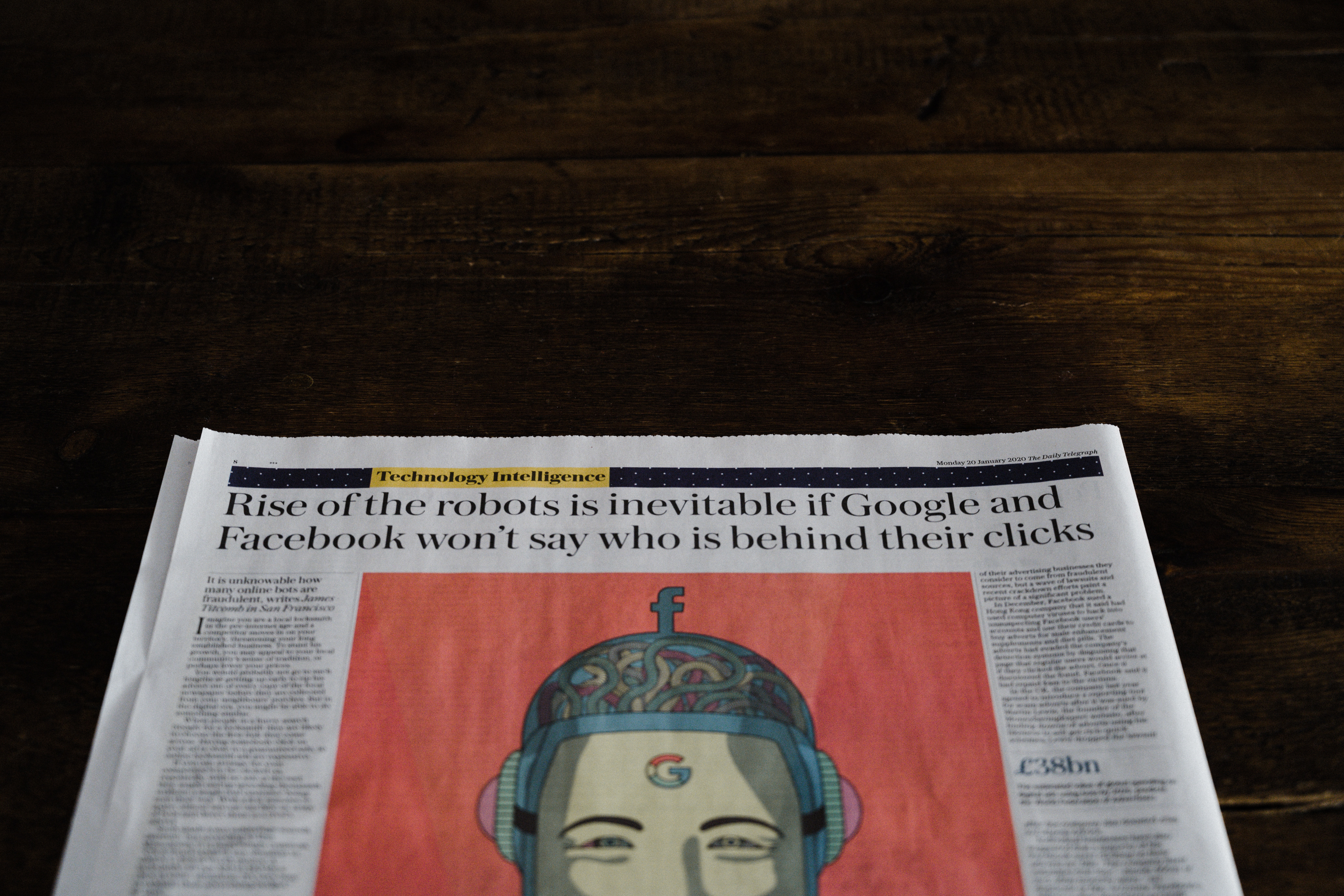You may know that Google is tracking you, but most people don’t realize the extent of it. Luckily, there are simple steps you can take to dramatically reduce Google’s tracking.
But first, what exactly are they tracking? When you search on Google, they keep your search history forever. That means they know every search you’ve ever done on Google. That alone is pretty scary, but it’s just the shallow end of the very deep pool of data that they try to collect on people.
What most people don’t realize is that even if you don’t use any Google products directly, they’re still trying to discover as much as they can about you. Google trackers have been found on 75% of the top million websites. This means they’re also trying to track most everywhere you go on the internet, trying to slurp up your browsing history!
Most people also don’t know that Google runs most of the ads you see across the internet and in apps — you know those ones that follow you around everywhere? Yup, that’s Google, too. They aren’t really a search company anymore — they’re a tracking company. They are tracking as much as they can for these annoying and intrusive ads, including recording every time you see them, where you saw them, if you clicked on them, etc.
But even that’s not all”¦
If You Use Google Products
If you do use Google products, they track you even more. In addition to tracking everything you’ve ever searched for on Google (e.g. “weird rash”), Google also tracks every video you’ve ever watched on YouTube. Many people actually don’t know that Google owns YouTube; now you know.
And if you use Android (yeah, Google owns that too), then Google is also usually tracking:
- Every place you’ve been via Google Location Services.
- How often you use your apps, when you use them, where you use them, and who you use them to interact with. (This is just excessive by any measure.)
- All of your text messages, which unlike on iOS, are not encrypted by default.
- Your photos (even in some cases the ones you’ve deleted).
If you use Gmail, they of course also have all your emails and contacts. If you use Google Calendar, they know schedule. There’s a pattern here: For all Google products (Hangouts, Music, Drive, etc.), you can expect the same level of tracking; that is, pretty much anything they can track, they will.
Oh, and if you use Google Home, they also store a live recording of every command you (or anyone else) has ever said to your device! Yes, you heard that right (err”¦ they heard it) — you can check out all the recordings on your Google activity page.
Essentially, if you don’t tell them not to, they’ll track pretty close to, well, everything you do on the internet. In fact, even if you tell them to stop tracking you, Google has been known to not really listen, for example with location history.
You Become the Product
Why does Google want all of your information anyway? Simple: as stated, Google isn’t a search company anymore, they’re a tracking company. All of these data points allow Google to build a pretty robust profile about you. In some ways, by keeping such close tabs on everything you do, they may know you better than you know yourself!
The result of all that tracking is that Google uses your personal profile to sell ads, not only on their search engine, but also on over three million other websites and apps. Every time you visit one of these sites or apps, Google is following you around with hyper-targeted ads, trying to influence your behavior.
It’s exploitative. By allowing Google and other social media giants like Facebook to collect all this info, you are allowing hundreds of thousands of advertisers to bid on serving you ads based on your sensitive personal data. Everyone involved is profiting from your information, except you. You are the product.
It doesn’t have to be this way. It is entirely possible for a web-based business to be profitable without making you the product — since 2014, DuckDuckGo has been profitable without storing or sharing any personal information on people at all. You can read more about Gabriel Weinberg, CEO & Founder, DuckDuckGo and their business model here.
The Myth of “Nothing to Hide”
Some may argue that they have “nothing to hide,” so they are not concerned with the amount of information Google has collected and stored on them, but that argument is fundamentally flawed for many reasons.
Everyone has information they want to keep private: Do you close the door when you go to the bathroom, or cover your windows when it gets dark? Privacy is about control over our personal information. We don’t want it in the hands of everyone, and certainly don’t want people profiting on it without our consent or participation.
In addition, privacy is essential to democratic institutions like voting and everyday situations such as getting medical care and performing financial transactions. Without it, there can be significant harms.
On an individual level, lack of privacy leads to putting people into a filter bubble, getting manipulated by ads, discrimination, fraud, and identity theft. On a societal level, it can lead to deepened polarization and societal manipulation as we’ve unfortunately been seeing multiply in recent years.
You Can Live Google Free
Basically, Google tries to track too much. It’s creepy and simply just more information than one company should have on anyone.

Thankfully, there are many good ways to reduce your Google footprint, even close to zero! It might feel like you are trapped in the Google-verse, but it is possible to break free.
Lets start with Social Networks.
Societal is a free facebook and twitter alternative that does not use adverts or sell your data. “societal is part of a federated network. That means there is no one single entity that is in complete control. The basic idea is you join one instance and you can subscribe to people on your instance and to people in other instances. This develops into a large network of different communities all linked together into a huge distributed network of social connections which gives you a lot of freedom over your data.” Click here to Join
Secondly, just switching the search engine for all your searches goes a long way. After all, you share your most intimate questions with your search engine; at the very least, shouldn’t those be kept private? If you switch to the
If you’re unfamiliar with DuckDuckGo, they are the leading provider of privacy protection tools to help you seamlessly take back control of your personal information online.





